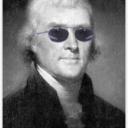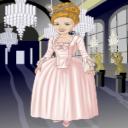Yahoo Answers is shutting down on 4 May 2021 (Eastern Time) and the Yahoo Answers website is now in read-only mode. There will be no changes to other Yahoo properties or services, or your Yahoo account. You can find more information about the Yahoo Answers shutdown and how to download your data on this help page.
Was society accurately depicted in Jane Austen's "Pride and Prejudice"?
Well, in any of her novels at least, was society genuinely like that? From my understanding, Elizabeth Bennet's family was poor, but were they actually poor at the lowest scale of that time or were they just lower-middle class lower-upper class or something?
Were men genuinely that... respectful towards women? For some reason, I assumed that women just weren't respected until recently since sexism still exists now, but maybe we as a society are just devolving?
Did people really speak fully like that? Like, instead of saying "Okay" when someone invites them to dinner, they say completely "I would be honored to join you for dinner tomorrow evening", you know?
Basically, I just want to know if reading Pride and Prejudice will give me an accurate depiction of the time that it is set in.
6 Answers
- staisilLv 78 years agoFavourite answer
Jane Austen wrote about society as she knew it. Austen only writes about the gentry class. Austen never (or almost never) writes about aristocrats (people with titles), and she never writes about the middle class, people who made money from having jobs. Her main characters are landowners, meaning they get their money primarily from rents. To keep their class status, they have to hang on to their land (or marry men with land). But in Pride and Prejudice, the gentry ranges from the just-hanging-on Bennets to Mr. Darcy and his 10,000 a year. To Lizzy, she and Mr. Darcy are the same; to the Bingley sisters and to Lady Catherine, they might as well belong to different worlds. People were very proper then and did speak in a formal manner.
- ?Lv 78 years ago
I hope you understand that the time it was set in is also the time it was written.
The Benet family was by no means poor. They were members of the gentility, and found it a strain living up to the expected standards (which is why Mrs Benet was so anxious for her daughters to make advantageous marriages), but they were much nearer the top of the social scale than the bottom.
Given that Austen was writing of her own time, it follows that the society she depicts is accurate. As for the language - people read more then and played rather fewer computer games. Accordingly, the vocabulary and mode of speech was generally more sophisticated than it is today. In that repsect, we are most certainly devolving.
- JayLv 78 years ago
Probably it was accurate - but bear in mind Austen was writing about a very narrow sector of society - those with money and land aristocrats and landowners and the like. The rural poor, tenant farmers, people in trade rarely enter her books and not as central characters. For example things like the war of independence, the industrial revolution barely make an impact and the Napoleonic wars are a detail. But she never set out to write historical novels but to describe the detail of rural society as told from the viewpoint of a woman who was of that class.
Yes they did speak in fuller sentences than we do now, it was considered to be polite, so formalities were observed. It was very important in Georgian society to be considered a gentleman whether you had a title or not.
- 8 years ago
Elizabeth's family were not poor. They just were not rich. Her father was a gentleman who never worked a day in his life. They even had servants.
In 18th- and 19th-century England, there were many people who were extremely poor. Read Oliver Twist and you'll get an idea.
Reading P&P will not give you an accurate depiction of the time, just of a very small part of landed gentry life.
Source(s): Jane Austen is my favourite author. - AthenaLv 78 years ago
No, nor was it meant to be.
This was Jane's view of life and her story in that life.
No author accurately portrays "society" in their story.
They depict what they see is the driving force for their tale.
Now, as for the formalities, yes, in that level of society it was more formal and there were layers.
"It is just not done" had stronger social connotations.
However, again, the levels of social convention are used to push Austin's story forward.




